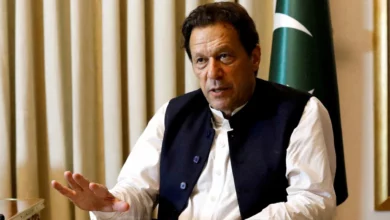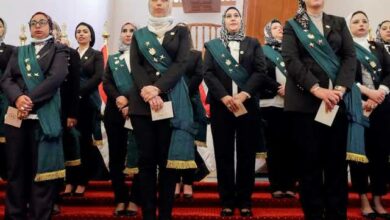Egypt’s former first lady relinquished some LE24 million in assets Monday in an attempt to satisfy the corruption investigation against her. But as investigations against former President Hosni Mubarak, his family, and his closest circle of advisers continue, Egypt’s judiciary now faces a major challenge: It must give rulings that satisfy demands for change, while maintaining an acceptable level of fairness in legal proceedings.
Both the number of investigations and the lack of independence in the judiciary pose major challenges for the prosecution of former regime officials.
Mubarak and his two sons, Alaa and Gamal, along with dozens of officials and businessmen, are being detained in Cairo's notorious Tora prison on various criminal charges.
The former president is in a Sharm el-Sheikh hospital, but he has also been remanded to prison while investigations are conducted into his actions. Charges against him center on the wasting of public funds, money laundering and profiteering, and the illegal killing of protesters.
Two senior Mubarak-era officials have already been sentenced. Former Tourism Minister Zoheir Garana received a sentence of five years in prison and former Interior Minister Habib al-Adly was given 12 years behind bars. But these convictions don’t necessarily mean prosecutions will be efficient or fair.
“People shouldn’t hail these elementary steps, because they are simply expected because of the public uproar,” says Sharif Helaly, a human rights lawyer and the executive director of the Arabic Institute for Civil Society and Human Rights Support.
These convictions might be a political move, intended as a concession to quell the protests of revolutionary groups, Helaly says.
“[There is] no doubt that popular pressures lead to accelerating the trials of figures of the former regime. These pressures have had an outcome so far for the ruling military, which did not hesitate to put the former regime on trial, including Mubarak,” says Helaly.
But conducting trials because of political pressure does little to ensure fair or accurate rulings.
“A judge has to be impartial and has to isolate himself from any external factors, but in Egypt I doubt that. People would have no mercy on a judge that sentenced members of the Mubarak regime with light verdicts,” Helaly says.
Zaghloul al-Balshy, a senior judge and the vice chairman of the Court of Cassation, knows the system well and has similar fears.
“But I know the whole issue in the judicial system now is not whether to have qualified judges or not. It’s about getting rid of the remnants of the Mubarak’s regime through the courts,” Balshy says.
Meanwhile, Egypt’s judiciary may not be capable of handling the volume of cases needed to prosecute all of the corruption cases. Scores of police officers accused of killing protesters are now on trial around the country, and some even face the death penalty.
“In general, the courts are overwhelmed with the normal rate of cases. Now they are asked to do more to oversee cases of corruption and cases of killing protesters,” says Nabil Abdel Fattah of the Al-Ahram Center for Political and Strategic Studies.
If the courts are already overwhelmed, the sheer scale of the investigation makes it even more difficult.
“The alarming thing is that nobody knows how much money is under investigation right now. We are speaking about a mafia that consists of more than 200 members who managed to steal US$700 billion over 30 years,” says Abdel Khalek Farouk, an economist who authored a book about corruption under Mubarak.
Even if the case were more manageable, the most pressing issue remains the heavy influence that the former regime had on Egypt’s judiciary.
For the last five years, independent judges have criticized the lack of independence of the judiciary as the executive has systematically intervened in the judicial process.
“The current judicial structure is alarming, since the former regime had been active in curtailing the scope of independence of the judiciary,” says Farouk.
Leaked documents obtained after the State Security headquarters were stormed in March showed that the secret police cooperated with some judges, directing them to issue rulings in favor of the regime.
Some judges cooperated with the former regime to rig the 2005 parliamentary elections in favor of Mubarak’s National Democratic Party, according to independent judges.
“It’s simple. Those judges who were mentioned in the SSIS documents should be investigated. As for those who helped the former regime to fix the elections, they should resign from their judicial posts,” Balshy says of his colleagues.
The former regime was also known for handpicking judges to oversee proceedings against certain opposition figures, experts say.
One such senior judge was Adel Abdel Salam Gomaa, who sentenced Egyptian-American human rights advocate Saad Eddin Ibrahim to seven years in prison on defamation charges. Human rights advocates at the time said the verdict indicated that Gomaa was under pressure from the regime.
“It’s a major setback, not only for the judicial system, but also for the revolution itself if we have judges like Gomaa – who are a main focus for controversy – investigating the cases of members of the former regime,” says Balshy. “You can’t benefit from Mubarak and then judge him in a court.”
Gomaa is now the judge responsible for the second trial of former Interior Minister Adly, who faces charges of ordering the killing of 846 unarmed protesters during the revolution.




